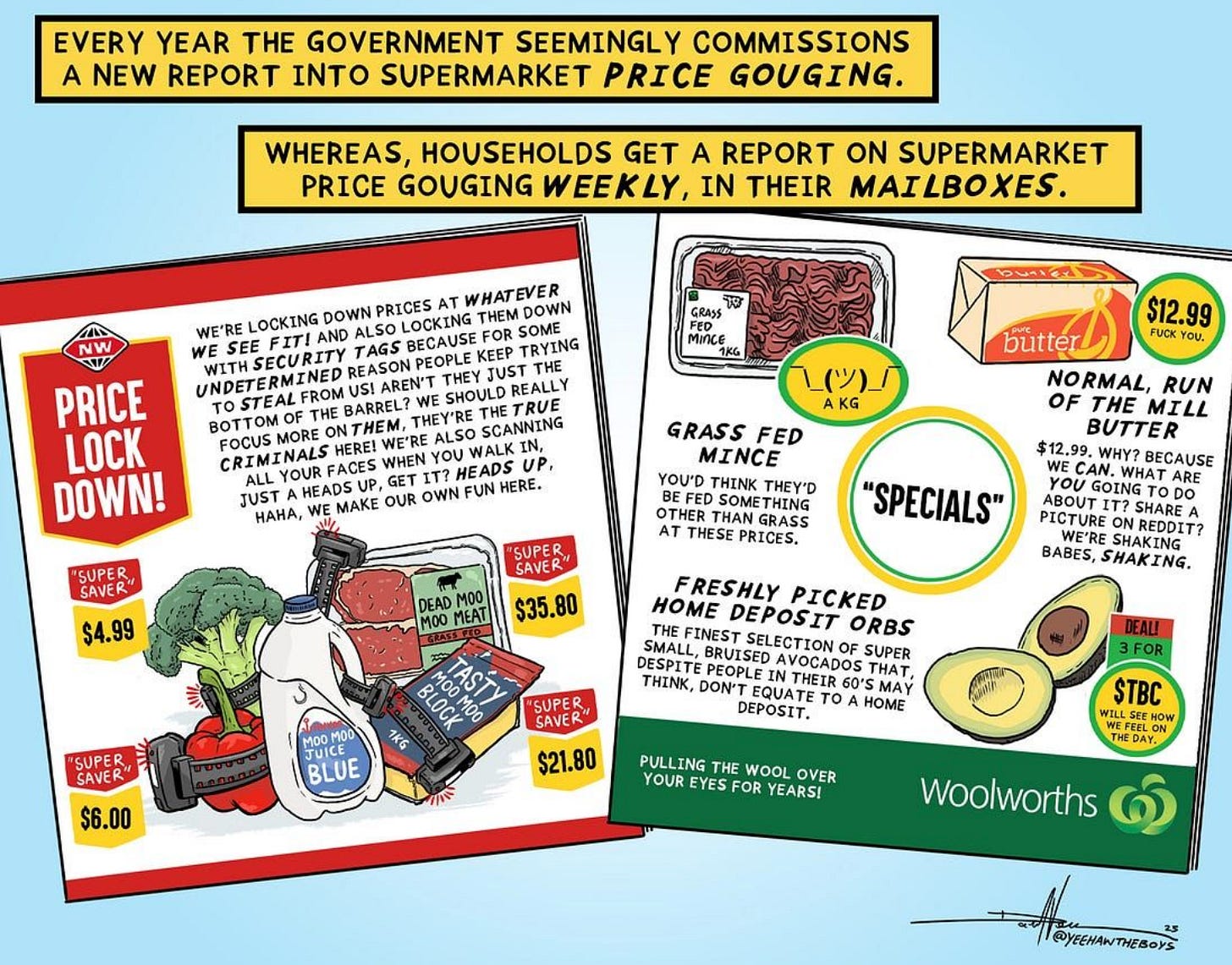Arguments, Algorithms, and Alfresco Drinking
and other interesting stuff I came across this week that I thought you might like too.
Weekly reads
The Effect Of Deactivating Facebook And Instagram On Users’ Emotional State from Stanford University. This paper reports thelargest-ever randomised experiment on social media and emotional wellbeing. Nearly 35,000 frequent users were paid to deactivate either Facebook or Instagram for six weeks. The results showed statistically significant improvements in emotional wellbeing. Interestingly though, most users didn’t spend their newly available time offline, they simply migrated to other apps.
And that’s what’s been rattling around my head lately: it’s not the hours online that wear us down, it’s the emotional texture of what we consume. Someone gets engaged, someone’s baby turns one, someone else just lost their dad and all of it, whether joyful or devastating, shows up in thesame scroll. You’re constantly absorbing other people’s big moments, but without the grounding of a real relationship to help metabolise it. It’s emotional noise without context, and it’s exhausting.
I think that’s why social media feels so disorienting. It blurs the line between intimacy and broadcast. Your brain treats it all like it’s happening to people you’re still deeply connected to. But it’s not. And yet the emotions - jealousy, nostalgia, inadequacy - still lodge themselves in your nervous system like they belong there.
Case in point: this week I was doom scrolling and came across thewedding video of a former romantic interest (we ended amicably over a misalignment in comedic delivery, but still). Twenty years ago, that kind of emotional ambush just wouldn’t have happened. People used to quietly exit your life - now they reappear without warning, set to a soundtrack that sounds like it was lifted from one of those cursed iPhone memory videos (also emotional ambushes!!)
I’ve restricted my social media use to mostly desktop only for the last six months. I honestly can’t recommend deleting it off your phone enough. As the research suggests, my screen time hasn’t gone down. Because even when we step back from social media, the impulse doesn’t disappear. We don’t actually want less stimulation, we just want something less emotionally expensive. I get my dopamine from slightly less brain-melting sources now. Substack. Duolingo. The news. LinkedIn, when I’m feeling dangerous. I am by no means cured, but at least I’m not endlessly sifting through other people’s lives like it’s a part-time job.
My friend Jesse summed it up best with the below quote of the week.
“Social media artificially and arbitrarily maintains connections that should be severed.”
The Love Letter Of Richard Feynman. Feynman’s wife died of tuberculosis in June 1945. Sixteen months later, he wrote her this letter. He sealed it in an envelope and it sat there, unread, for 42 years. It was found after he died in 1988.
Have We Lost The Art Of The Argument? by Duncan Greive for TheSpinoff. A great piece on Greive’s observation that increasingly arguments on political or social issues lack persuasion or genuine curiosity. Instead, we now argue like we’re rallying allies rather than engaging opponents. The art of the argument has become adversarial, absolutist, and largely performative.
She Was On The Spectrum, He Was A Fat Chubby Nerd: Madison Ashton On Polkinghorne, His Family And Pauline Hanna by Steve Braunias for The Listener. The story that keeps on giving.
Lowering The Voting Age Won’t Reshape The Electorate by Stephen Bush for The Financial Times. The UK have dropped their voting age to 16 this month, effective from the next election.
Young And Living In NZ? It’s Probably Better Than You Think by theauthor of *this* little ol’newsletter for The Post. I started writing thinking no one would really read anything I had to say, so receiving dozens of thoughtful messages in response to this piece has been genuinely wonderful.
Do We Really Spend Less When The Weather Is Bad by Tom Calver for The Times. His analysis finds that weather is a stronger day‑to‑day predictor of consumer spending than inflation or unemployment. Sunshine boosts serotonin and dopamine, which makes us more optimistic and, it turns out, more willing to spend. It certainly tracks with me. This has been the warmest, sunniest Wellington winter I can remember (in the last week alone, I’ve had an alfresco drink, worn a single layer on a night out and been to the beach!!) and I’ve definitely noticed my wallet feeling a little lighter as a result.
Cartoon of the week
Podcast of the week
DEBATE: Feminist Women Vs Non-Feminist Women from Diary of a CEO. Best podcast I’ve listened to this year. Buckle up because it’s a couple of hours that takes you from hook-up culture to the declining rates of marriage and motherhood. Stats worth noting down included; 50% of young women not wanting children and 82% of young women are said to feel depression and anxiety following casual sexual encounters.
Something living in my head rent free
Is it just me or does matcha taste like someone putting pond water, grass clippings and a superiority complex in a nutribullet in exchange for $8?
Discovery of the week
You can design your own Lego creation and post it on this site and if you get enough votes they will actually make it.
Fact of the week
Dolly Parton runs a program that delivers a free, age-appropriate book each month to children from birth until age five for free. Inspired by her love of reading she has gifted over 270 million books.
Word of the week
Apricity - The warmth of the sun in winter.
Happy reading,
Maddy xx




